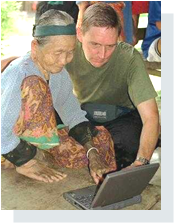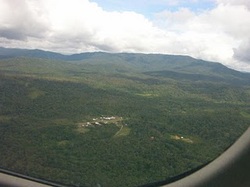
I have long been rankled by conferences, workshops and seminars about poverty reduction that take place in luxurious surroundings – city-based 4 or 5-star hotels and conference centres – with no poor people in the room. Have you ever thought that the money spent on such events could be put to better use by helping to achieve what the participants are actually discussing? Development Conferencing turns the popular conference model on its head; by taking the pundits to the rural places and people they are talking about and mixing them together in the same room (most Asian poverty is rural). Everyone benefits from this. The practitioners, professionals and academics get a taste of rural poverty; for some of whom this may be a rare experience, and the poor people themselves (‘beneficiaries’ or ‘subjects’ as they are known in development parlance) get to hear how decisions that might affect them are made, something that is equally rare in development practice. Additionally, the money that goes into organising the event; the cost of accommodation, lodging and conference facilities, goes into the local economy instead of into the coffers of the hotel corporations, thereby contributing to local development. Another significant benefit arises in the form of cost savings for the organisers as local rural facilities cost less than the conventional city-based conference venues. Whilst access to the location for the outside visitors may present some challenges, the benefits will make the extra effort worthwhile.
Actually, travelling to attend a conference is a form of tourism. MICE Tourism refers to Meetings, Incentives, Conferences, and Exhibitions. It is a particular type of tourism in which groups of people are brought together for a particular purpose; perhaps to share knowledge, promote their products or just to enjoy the junket. The term Pro-Poor Tourism has emerged as a mechanism for ensuring a larger proportion of tourism revenue is earned by the poor residents of popular tourism locations; something that is not an automatic outcome of the growth of global tourism. Similarly, Community-Based Tourism is a type of Pro-Poor Tourism that is operated by rural villagers themselves whereby visitors stay in the households of the local residents, share in their daily lifestyles, enjoy the rural environment and learn about the local culture. So why not pro-poor MICE as a form of Community-Based Tourism - something that you might expect would be of particular interest to people working in poverty reduction?
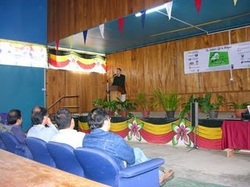
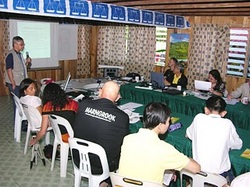
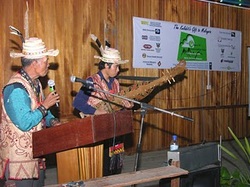
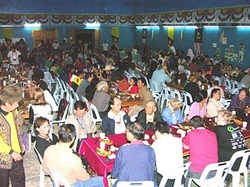
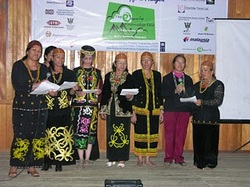
-“conferences such as these can only benefit Indigenous Peoples,”
- “such a great conference I ever attended in my life,”
- “great meeting in Bario, thank you for organising it in such an appropriate venue,”
- “I just got back after a few days in Kuala Lumpur for the GK3. It was not half as interesting as the workshop in Bario,”
- “what a lovely time with lovely people,”
-"thanks to UNDP who invited me to attend such a life-long memorable event at Bario. We didn't just come to share experiences and knowledge on using ICTs by and for Indigenous Peoples, but also come to nurture our brother-and-sisterhood among Indigenous Peoples,”
- “it was great hanging out with everyone and in such an appropriate setting,”
-“thanks to UNDP for making this happen and not putting us into yet another beige conference hall in one of the worlds capitals!”
-“visions of the Bario folk and the e-Bario gang still dancing 'round my head,”
- “an enriching experience indeed.”
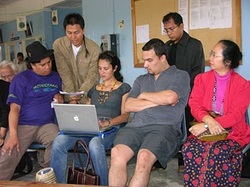
Many of those I have worked with in rural development over the last ten years or so will have heard me on occasion complain about those development professionals who ‘never get mud on their shoes’; referring to the army of desk-bound city-based pundits who seem able to download a few reports (‘knowledge products’ in development speak) off the internet and turn themselves into experts overnight without actually getting out ‘into the field’ (another development-speakism) where the knowledge is actually created and put into effective use. It’s safe to say that no-one at the e-Bario Knowledge Fair could be accused of falling into that category, either figuratively or factually. Call it “Development Conferencing” or “Pro-Poor MICE”, the event in Bario demonstrates how desirable benefits can arise from such an approach. I commend it to development practitioners who are equally concerned about the amount of development money that fails to reach its targets and who wish to enrich their activities with a taste of reality.
